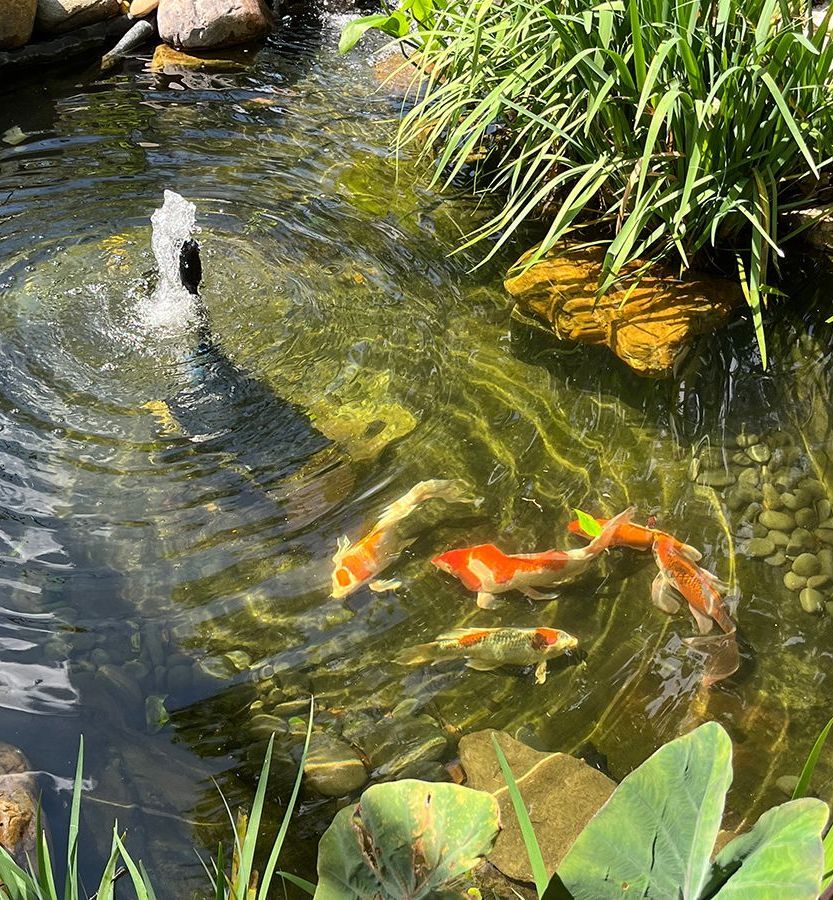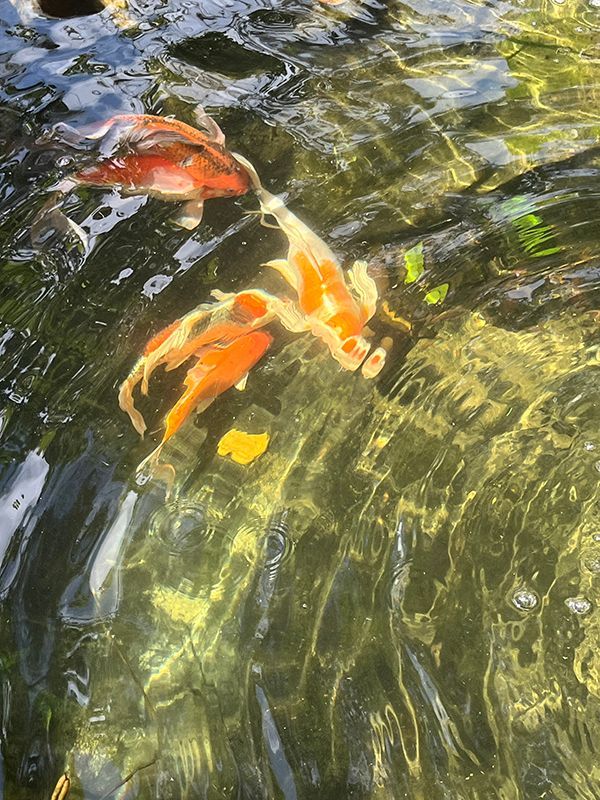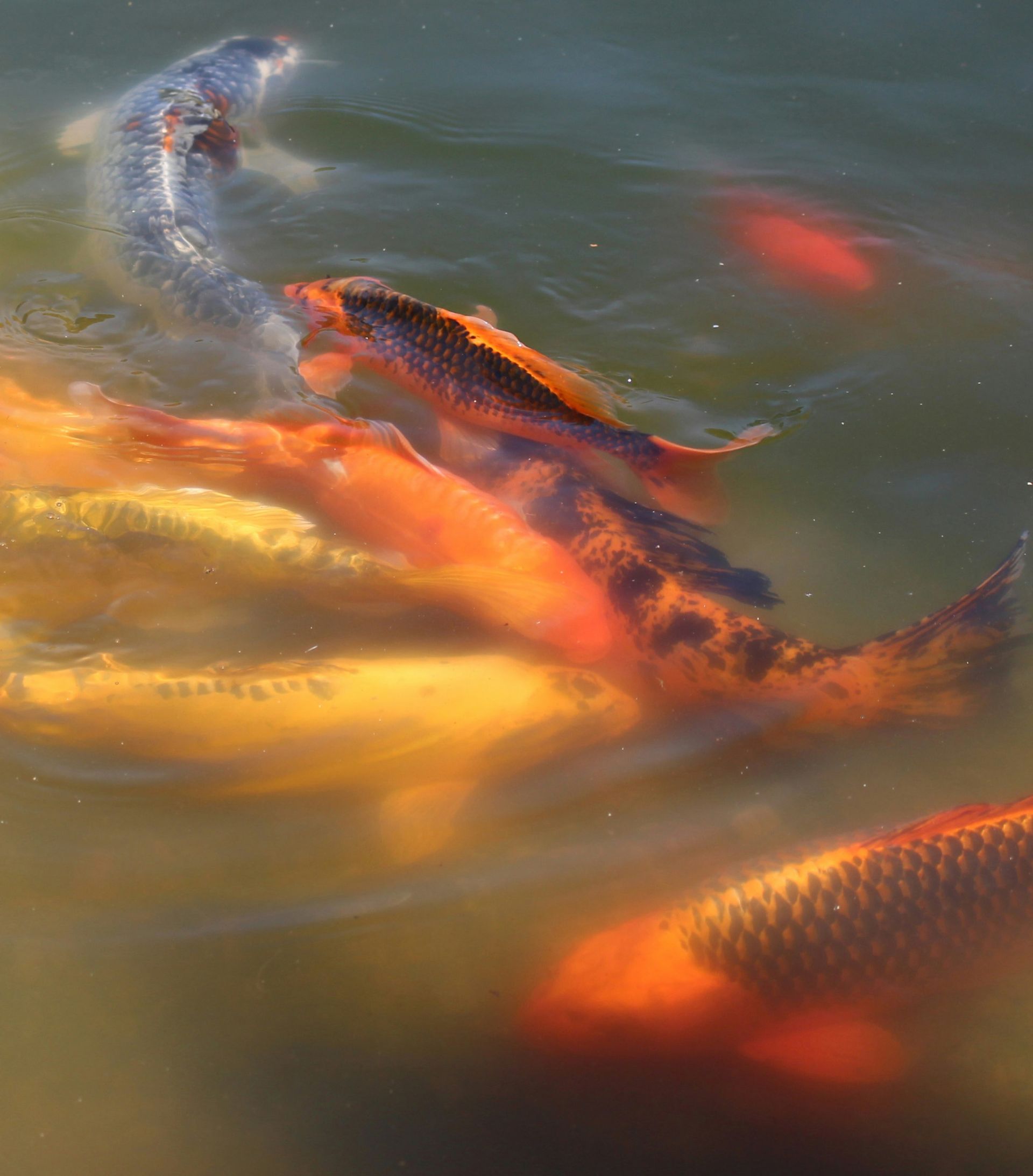What Are the Best Ways to Keep My Fish Healthy?
Backyard ponds are serene, captivating complements to any home, offering a slice of nature's tranquility just steps away from your doorstep. Add koi carp, common goldfish, golden orfe, or other fish to the waters and they’ll provide a moving element and a distinct pop of color to further enhance your pond’s appeal.
It is important, however, to ensure the well-being and vibrancy of your aquatic pets in order to maximize the enjoyment of your water feature. Through proper care and maintenance, you can have happy and healthy fish that actively explore their surroundings, and get along with their pond buddies. Here’s how to do right by them with a focus on the role of supplements and vitamins in promoting their health and longevity.
Understanding the Basics of Backyard Pond Fish Care
Keep the Water Quality High
Maintaining the water’s clarity and ability to support aquatic life is paramount for your fish’s health. It is essential to regularly test for specific water parameters such as pH, ammonia,
nitrites and nitrates, and ensure they stay within acceptable ranges. Investing in proper filtration and aeration can increase the oxygen levels in the water for the well-being of your pond's inhabitants. In Central Florida, the weather tends be pretty consistent but remain aware of the water temperature as large fluctuations can affect your fish’s feeding and metabolism.


Don't Overcrowd Your Pond with Fish
When there's not enough space to swim freely, fish tend to get stressed, and lash out. Consider the size and design of your pond, and make sure there is enough space, depth, and shelter for their comfort and safety. A good rule of thumb is 1 inch of fish per 1 square foot of the surface area so a pond that measures 10 feet by 15 feet can accommodate 150 inches of fish which is about ten 15 inch fish or twenty 7.5 inch fish. Now, if you build an extra deep pond, more than 24"-30" deep, you can handle higher numbers of fish. Take care to not congest your pond with too many plants which can lead to imbalances in the ecosystem.
Don't Overfeed
Overfeeding can lead to water quality issues and health problems, so feed your finned friends just the right amount of high quality food. Give only what they can finish in 5 minutes, once or twice a day. Remove any uneaten food from the water before it ends up in the bottom of your pond, to rot and contribute to sludge and ammonia build-up. The decayed food can also create a breeding ground for bacteria which increases the risk of illnesses among your fish.
What Should I Do If I Notice My Fish Aren't Well?
If after covering the basics your backyard pond pets still show symptoms like stress and sickness, maybe their diet is lacking in certain nutrients which can lead to health issues. Just like humans, fish can use supplements and vitamins to support their growth, immune function, and overall vitality by filling in the nutritional gaps. Here's a breakdown of some key supplements and vitamins beneficial for pond fish:
Vitamin A: Vitamin A has an important role in a range of fish physiological processes such as vision, reproduction, and growth. It promotes good visual faculty by preventing the clouding and thickening of the corneas, and degeneration of the retina. This dietary nutrient helps with fertility, as well, in terms of sperm and egg development. It also restores faded body color, and stops fin and skin hemorrhages so your fish will stand out beautifully in the water.
Consider adding to your pond pets’ diet with vitamin A supplements if you notice them having difficulty navigating their environment or locating their food. Rough or flaky skin, lesions, excessive mucus production, and other skin abnormalities are also signs of vitamin A deficiency. If your breeding pairs are having trouble spawning successfully or producing viable offspring, a lack of vitamin A may also be a reason why.
Vitamin C: From disease prevention and healing, to proper digestion and formation of the skeleton, vitamin C plays an important role in fish physiological function and normal growth. This water soluble vitamin is associated with improved tissue growth and a strengthened immune system without causing any harmful side effects. It can also reduce stress and body heat which is beneficial during water temperature fluctuations or home relocations.
Fish with inadequate Vitamin C levels exhibit slow or flawed wound healing which can lead to secondary infections. They are more susceptible to bacterial, viral or parasitic infections, and may appear lethargic with reduced activity levels and appetite. They spend more time resting at the bottom of the pond or hiding in the vegetation, and show little interest in exploring their surroundings or interacting with other fish.
Vitamin D: The nutritional effects of vitamin D are primarily exhibited in the skeletal development and cell growth of your pond fish. The fat-soluble vitamin aids in calcium absorption to reduce the risks of spinal deformities and diseases like osteoporosis. It also helps develop fish scales for more vibrant colors. Though vitamin D can be obtained through exposure to sunlight, supplementation may be necessary if your pond receives limited sunlight due to shade and plant cover.
Common signs of vitamin D deficiency include stunted growth or developmental abnormalities with younger fish failing to reach their full size potential or exhibiting delayed growth milestones. They have difficulty swimming or maintaining buoyancy because of bent or curved spines, or weakened skeletal structures. Dark coloration and lethargy are also signs of inadequate vitamin D levels.
Probiotics: Too many bad bacteria in the gut and not enough good bacteria can lead to digestive disorders and infections in your fish. Probiotics are the beneficial bacteria that restore the normal healthy balance of bacteria in their gut to help in digestion and nutrient absorption. A specially formulated probiotic product can create a physical barrier against harmful pathogens to prevent viral infections and digestive problems from happening.
Fish with probiotic deficiency tend to manifest reduced appetite and weight loss due to the disruptions in their gut. The attack on the gut wall weakens it enough to produce digestive problems that result in swollen abdomens and protruding scales around the swollen areas. Probiotic-deficient fish also exhibit stress-related behaviors such as increased aggression, erratic swimming patterns, or hiding actions.
Happy, Healthy Pond Life
By understanding the importance of supplements and vitamins in promoting fish health in your pond, you can create a thriving aquatic ecosystem that brings joy and beauty to your outdoor space. Thankfully, there are a number of fish multivitamins with probiotics on hand so you don’t need to buy separate products. With the right care and attention like
Focal Point Ponds’ professional maintenance services, you can enjoy your pond features to their fullest potential for many years to come.



